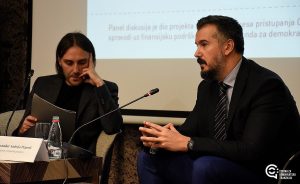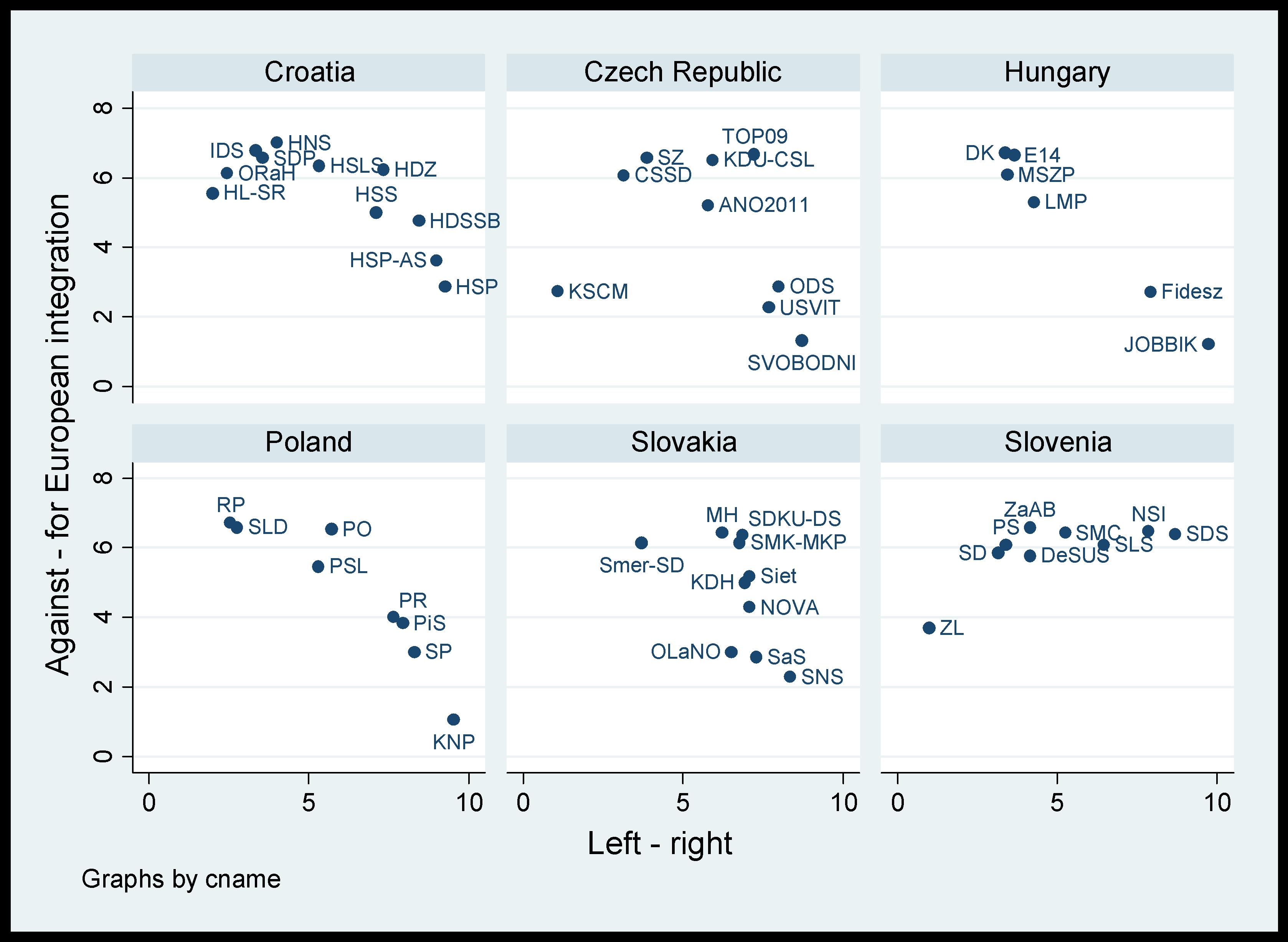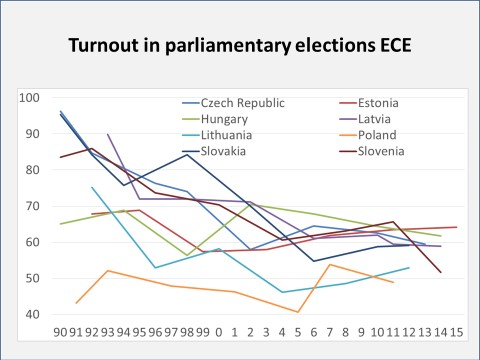Zur Lage von Demokratie und Marktwirtschaft in Ostmittel- und Südosteuropa
Regionalanalyse zum neuen Transformation Index der Bertelsmann Stiftung, Februar 2016
Die globale Finanz- und Wirtschaftskrise und die folgende Krise der Eurozone hatten jenseits der unmittelbaren ökonomischen Wirkungen auch gravierende politische Konsequenzen in Ostmittel- und Südosteuropa. Die Krisen zeigten, dass eine auslandsabhängige ökonomische Entwicklung anfällig gegenüber den internationalen Finanzmärkten ist.
Risiko-averse internationale Finanzmärkte und die strikteren EU-Überwachungsverfahren im Zuge der Eurozonenkrise beschränkten die fiskalischen Verteilungsspielräume der ostmittel- und südosteuropäischen Regierungen. Infolgedessen vergrößerte sich die Diskrepanz zwischen verantwortlichem und responsivem Regierungshandeln, d.h. die Inkompatibilität zwischen den externen Beschränkungen und öffentlicher Meinung als Orientierungsbasis.
In Ostmittel- und Südosteuropa verstärkten sich diese Auswirkungen der Krisen im Zusammenspiel mit institutionellen Schwächen der politischen Parteien. Die Aushöhlung demokratischer Kontrollmechanismen im Interesse finanzpolitischer Verantwortlichkeit hat die Repräsentationsprobleme der jungen Demokratien verstärkt. Wähler, die feststellen, dass die von ihnen gewählten Regierungsparteien ihre Wahlversprechen aufgrund externer Zwänge nicht oder nur teilweise realisieren können, tendieren dazu, den Wahlen fernzubleiben, Protestaktionen zu unterstützen oder politische Alternativen zu präferieren, die sich externen Interessen nicht unterwerfen wollen.
Wenn populistische oder andere Anti-Establishment-Parteien Wahlen gewinnen und Regierungsverantwortung übernehmen, sind sie mit drei grundlegenden Optionen konfrontiert. Wenn sie ihre weitergehenden politischen Ziele zurückstellen und „verantwortliche“ Politiken formulieren, riskieren sie, ihre Glaubwürdigkeit und damit die Unterstützung ihrer Wählerschaft zu verlieren, insbesondere dann, wenn ihre mangelnde Responsivität von anderen populistischen Herausforderern zum Vorwurf gemacht werden kann. Versuchen populistische Amtsinhaber dagegen, ihre Politikversprechen zu realisieren, dann werden die Finanzmärkte und die EU-Institutionen wahrscheinlich ihre „unverantwortlichen“ Politiken sanktionieren, was zu ihrem Scheitern führen oder beitragen kann. Ein solches Versagen setzt sie der öffentlichen Kritik aus und könnte viele Wähler veranlassen, ihnen die – notorisch labile – Unterstützung zu entziehen. Die dritte Option besteht darin, responsive Politiken mit Maßnahmen zur Einschränkung der öffentlichen Kontrolle und des politischen Wettbewerbs zu kombinieren, was zu einem Muster dominanzorientierter Machtpolitik führt, das etwa in Ungarn entstanden ist.
Die Demokratien Ostmittel- und Südosteuropas haben sich bisher in unterschiedlichem Maße als anfällig für die politischen Auswirkungen der globalen Finanz- und Eurozonenkrise erwiesen. Wirtschaftspolitische Fehler und eine stärkere Exposition gegenüber den internationalen Finanzmärkten trugen dazu bei, dass die Krisen Kroatien, Slowenien und Ungarn stärker trafen als Polen oder Tschechien. Mitte-Links-Parteien wie die Ungarische Sozialistische Partei und die slowenischen Sozialdemokraten wurden stärker in ihrer Glaubwürdigkeit erschüttert, da sie in größerem Maße als Mitte-Rechts-Parteien auf die europäische Integration als Legitimationsquelle angewiesen waren. Die Wählerverluste der Demokratischen Bürgerpartei in Tschechien oder der Kroatischen Demokratischen Gemeinschaft resultierten dagegen primär aus der Verwicklung ihrer Führungen in Korruptionsskandale. Inklusivere, organisationsstärkere Mitte-Rechtsparteien in Bulgarien (GERB), Polen (PO), Serbien (SNS) und Ungarn (Fidesz) waren besser dazu in der Lage, die Diskrepanz zwischen responsiver und verantwortlicher Politik zu überbrücken. In Ländern mit stärker fragmentierten Mitte-Rechts-Parteien wie Tschechien oder Slowenien dagegen schnitten neu gegründete Parteien bei den Parlamentswahlen besonders erfolgreich ab. In der Slowakei beschränkte eine gut organisierte Mitte-Links-Partei (Smer) die Möglichkeiten neuer Parteien, das bestehende Parteiensystem umzustürzen.
Anders als in Ungarn behielten die wichtigsten politischen Eliten in Bulgarien, Rumänien und der Slowakei auch nach dem EU-Beitritt ihre EU-freundlichen Grundhaltungen bei und verzichteten darauf, Konflikte mit der EU zur politischen Mobilisierung zu benutzen. In den westlichen Balkanländern verringerten die Anreize und Bedingungen des Beitrittsprozesses die politischen Spielräume für eine EU-Skepsis unter den moderaten Parteien. Während Ungarns gemischtes Wahlsystem eine parteipolitische Polarisierung und populistische Kampagnen begünstigte, begrenzten die proportionalen Wahlsysteme Bulgariens, Sloweniens und Tschechien die Mandatsgewinne erfolgreicher populistischer Parteien. Schließlich unterscheiden sich die einzelnen Demokratien im Verhältnis zwischen ökonomischer Performanz und Demokratie-Unterstützung durch die Bevölkerung.
Diese Bedingungskonstellationen und Einflussfaktoren bieten Erklärungen für die unterschiedliche Resilienz der ostmittel- und südosteuropäischen Demokratien. Sie weisen aber auch darauf hin, dass eine Dekonsolidierung dieser jungen Demokratien trotz der EU-Mitgliedschaft möglich ist, wenn mehrere ungünstige Umstände und Einflüsse zusammentreffen.
Ausführlicher Bericht:
BTI16_OMESOE
BTI 2016





